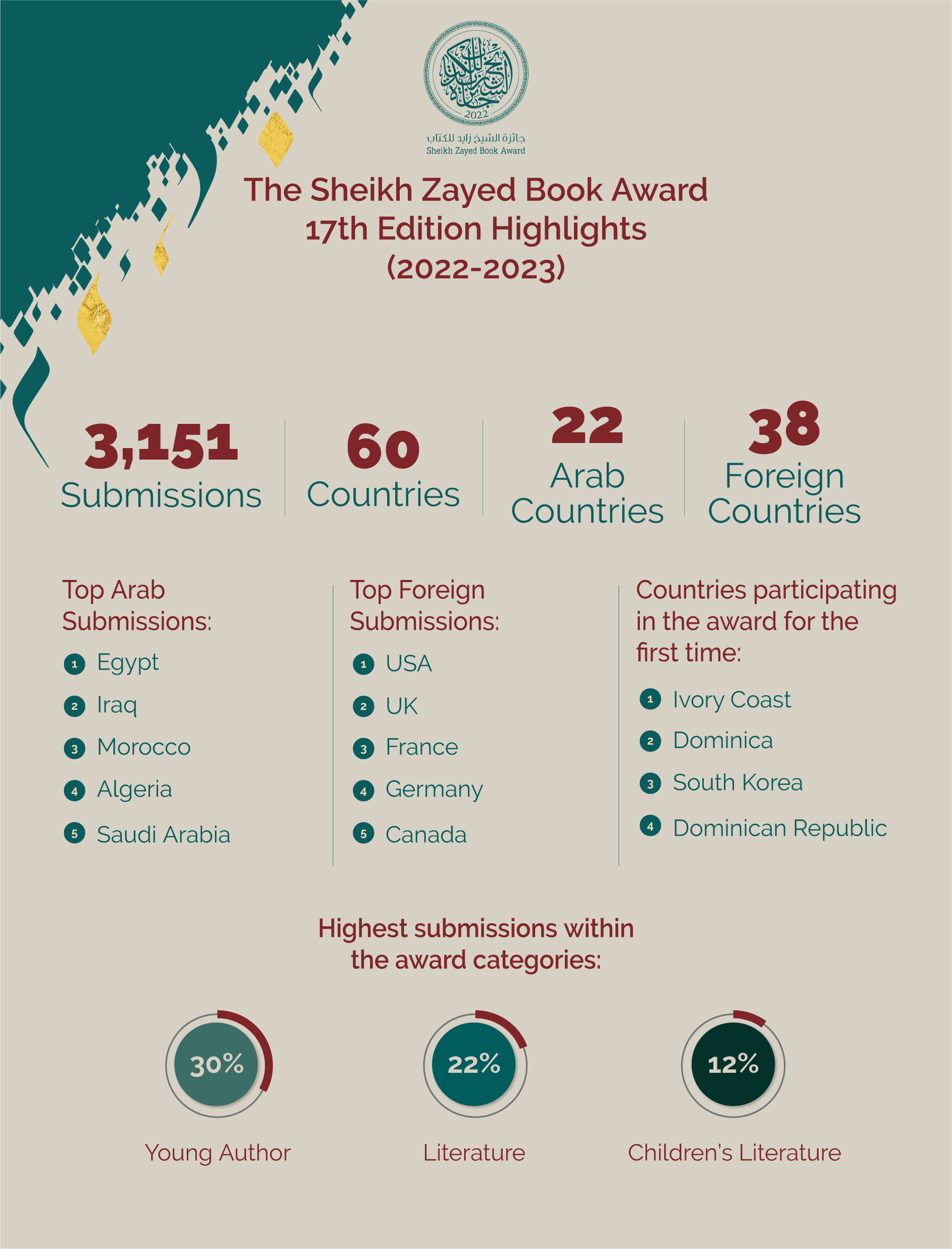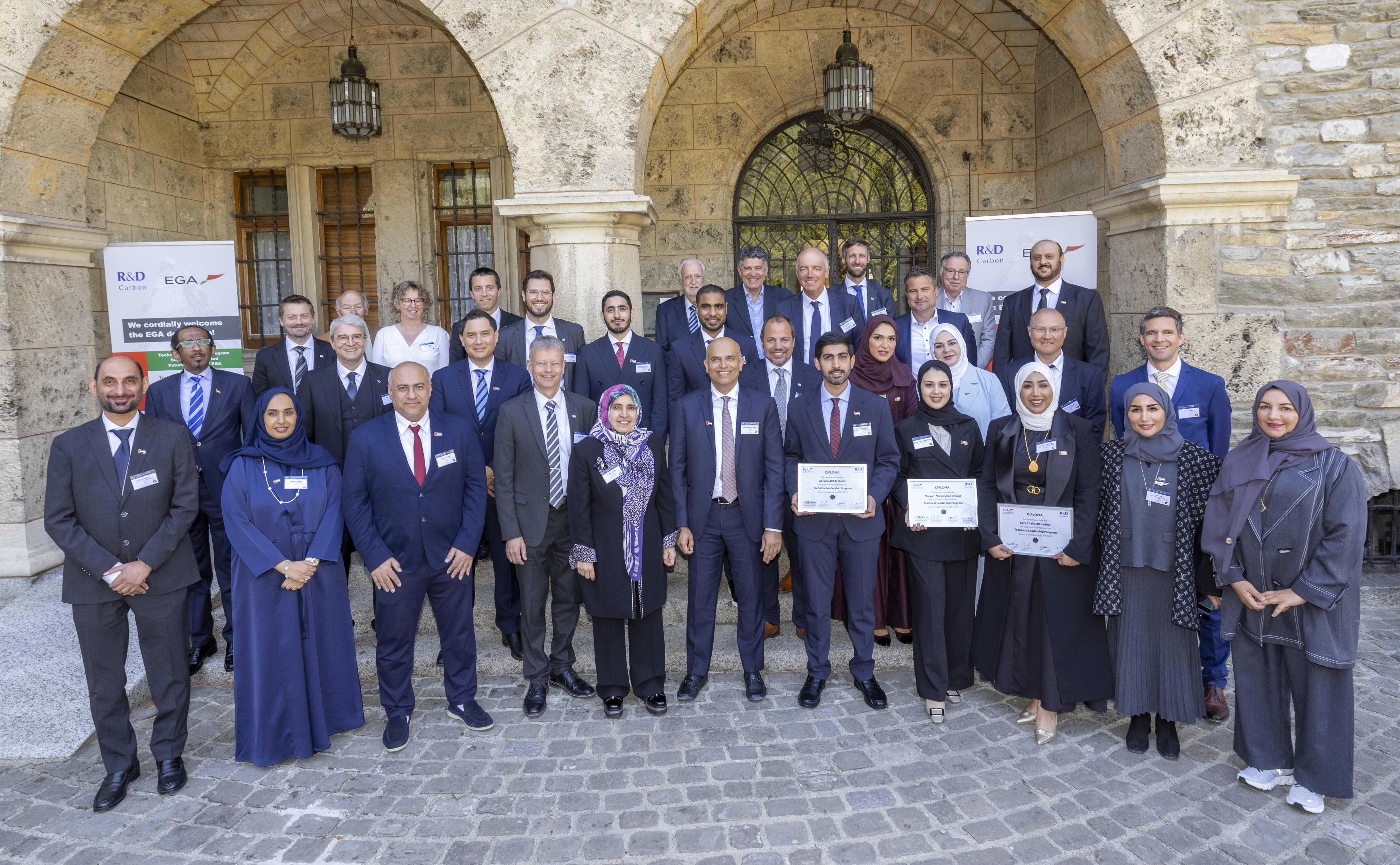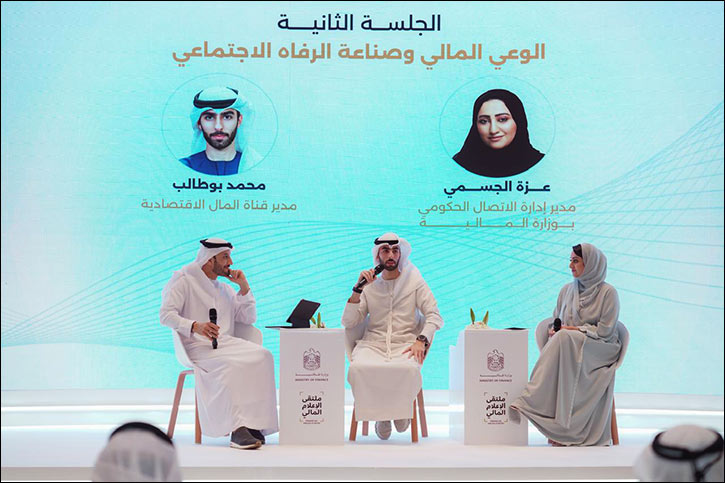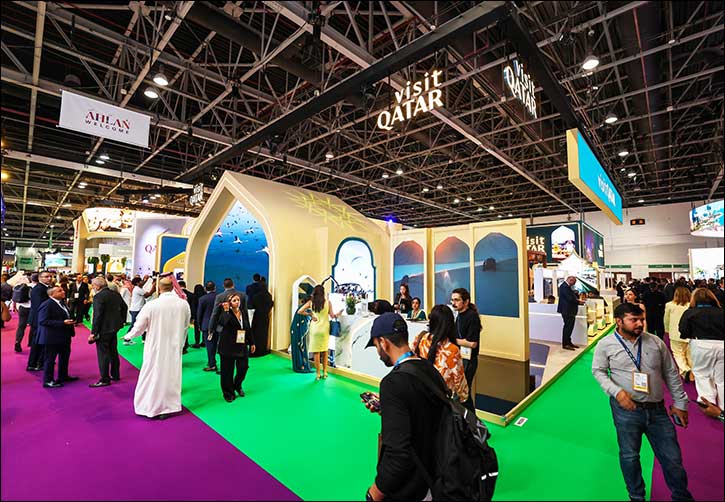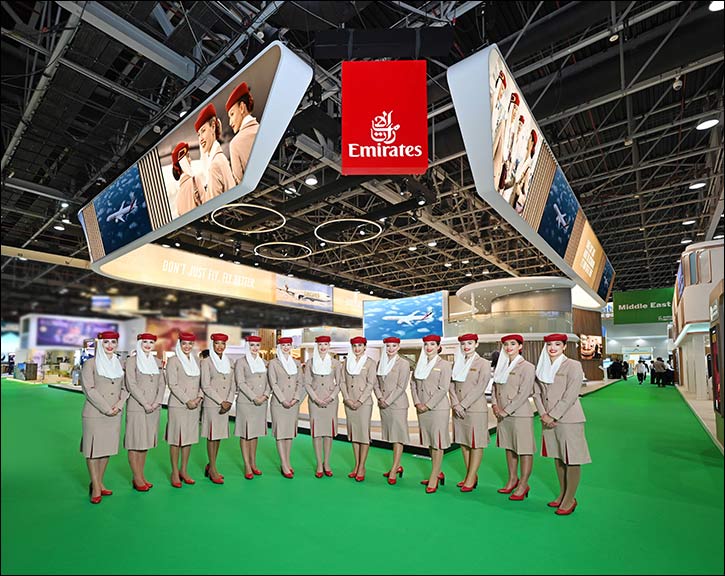The Committee evaluated a total of 3,151 submissions from 60 countries.
Notable growth in Children’s Literature and Translation categories surpassing last year’s submissions marking a 63% and 55% growth increase, respectively
14% increase in female author participation from last year
Four countries participating in the Award for the first time: Ivory Coast, Dominica, South Korea, and the Dominican Republic
The Sheikh Zayed Book Award (SZBA) at the Abu Dhabi Arabic Language Centre (ALC), part of the Department of Culture and Tourism - Abu Dhabi (DCT Abu Dhabi), has received a total of 3,151 submissions from 60 countries, 22 of which are Arab nations and 38 foreign nations, for its 2022/23 edition, after closing the nomination period for the Award’s 17th edition in early October 2022.
Chaired by His Excellency Dr. Ali bin Tamim, Secretary-General of the SZBA and Chairman of the ALC, the Award’s Reading Panel Committee has now concluded its coordination meetings, where it reviewed the nominated books and assessed their compliance with conditions and requirements. The Committee includes Mr. Saeed Hamdan Al Tunaiji, Acting Executive Director of the ALC, Prof. Dr. Khalil Al Sheikh from Jordan, Dr. Badria Al Bishr from Kingdom of Saudi Arabia, as well as Dr Ali Al Kaabi from the UAE.
“The turnout we have witnessed for this latest edition of the Sheikh Zayed Book Award reflects the exponential and continuous growth trajectory the Award has been on, cementing its leading global position as a highly respected award in the Arab and international literary and cultural fields,” said HE Dr. Ali bin Tamim. “We are proud of the opportunities that the SZBA provides for writers and other stakeholders in the cultural and literary sectors to present their vision and showcase their works and creativity as a literary and artistic inspiration.”
The number of submissions for this round has surpassed all previous editions and is the largest ever recorded in the Award’s history. Egypt accounted for the largest share of submissions from Arab countries this year, followed by Iraq, Morocco, Algeria, and Saudi Arabia. Meanwhile, the United States topped the list with the highest number of submissions among foreign countries, followed by the United Kingdom, France, Germany, and Canada. The 17th edition of the SZBA also saw submissions from four countries participating in the Award for the first time: Ivory Coast, Dominica, South Korea, and the Dominican Republic.
The category with the highest volume of submissions was Young Author with 954 submissions, accounting for 30% of total nominations. Literature came in second place with 688 nominations (a 22% share), followed by Children’s Literature with 386, accounting for 12% of the total. Rounding up the list are the remaining categories: Literary and Art Criticism, Contribution to the Development of Nations, Translation, Arab Culture in Other Languages, Cultural Personality of the Year, and Publishing and Technology.
The Children’s Literature category recorded a notable growth in submissions in this current edition with 386 nominations, marking a 63% growth from the 237 received last year. Meanwhile, the Translation category saw a 55% increase in nominations, going from 148 last year to 230 this year.
On another note, the number of female authors participating in this year’s edition of the Award increased to 1,042, marking a growth of 14% from last year’s 915. Meanwhile, 2,049 male authors took part in this edition, up by 2% from last year when 2,003 nominations were received.
The longlists for the 17th edition of the SZBA will be announced in November, as the judging committees launch the comprehensive evaluation stage for all titles.
Launched in 2006, the Sheikh Zayed Book Award aims to promote Arab literature and culture and honours outstanding achievements of creative thinkers in the fields of literature, arts, and humanities in Arabic and other languages, creating new opportunities for Arabic-speaking writers. The Award also honours authors who write about Arab culture and civilisation in English, French, German, Italian, Spanish, and Russian.
